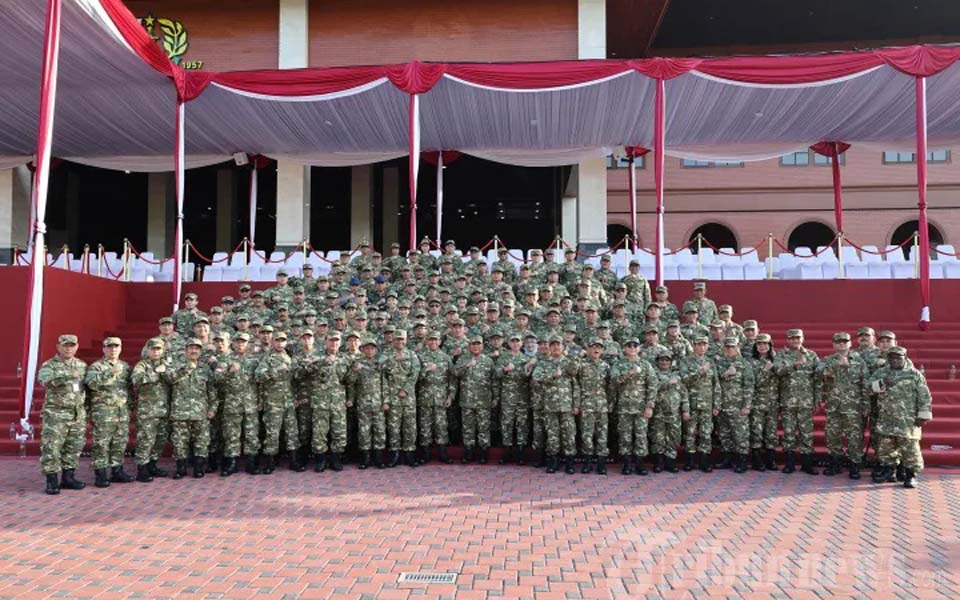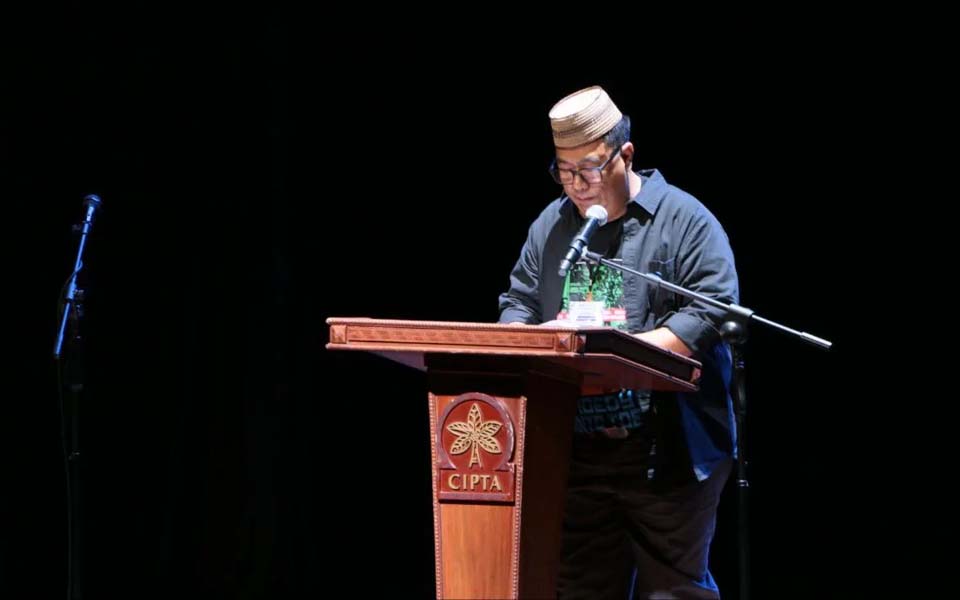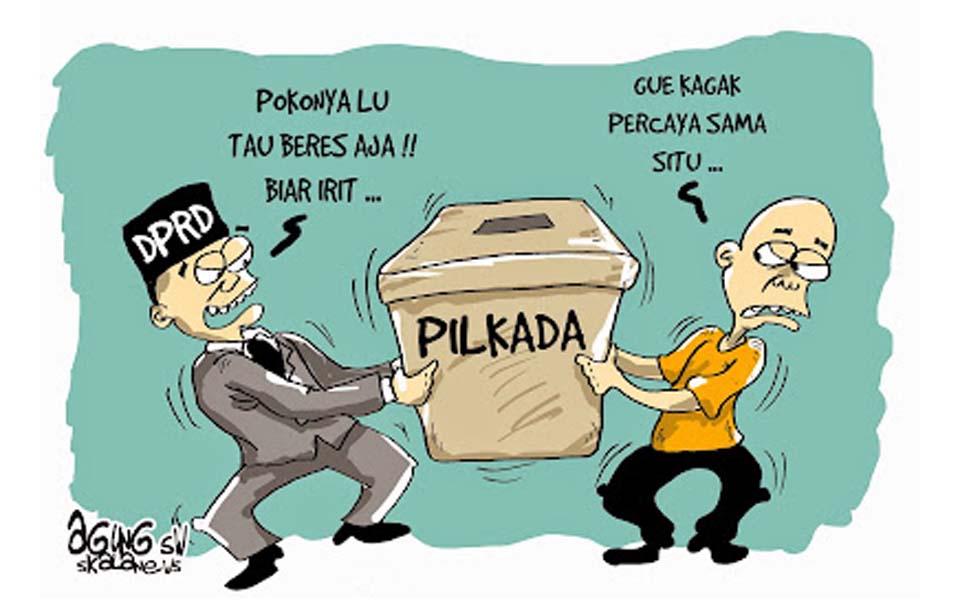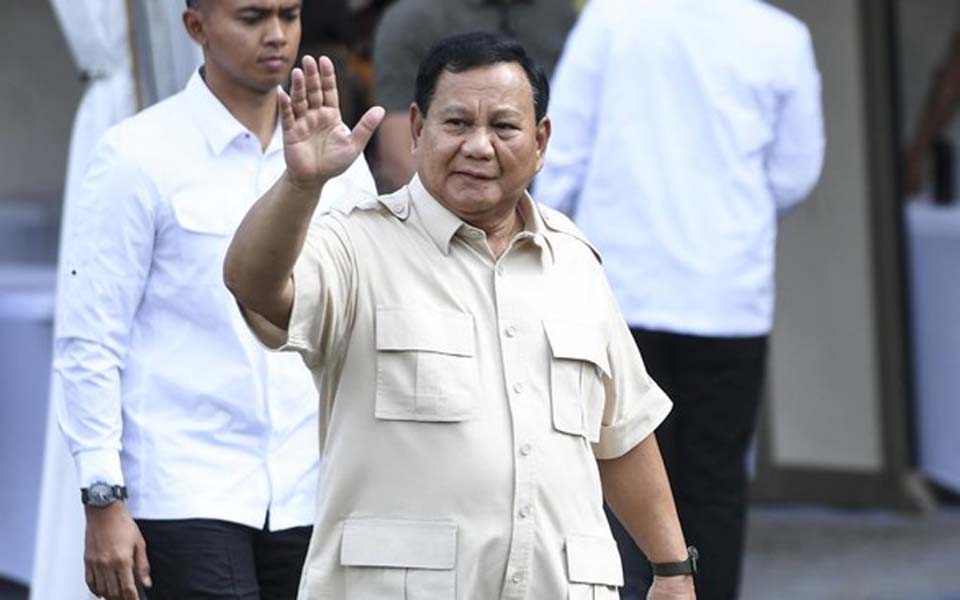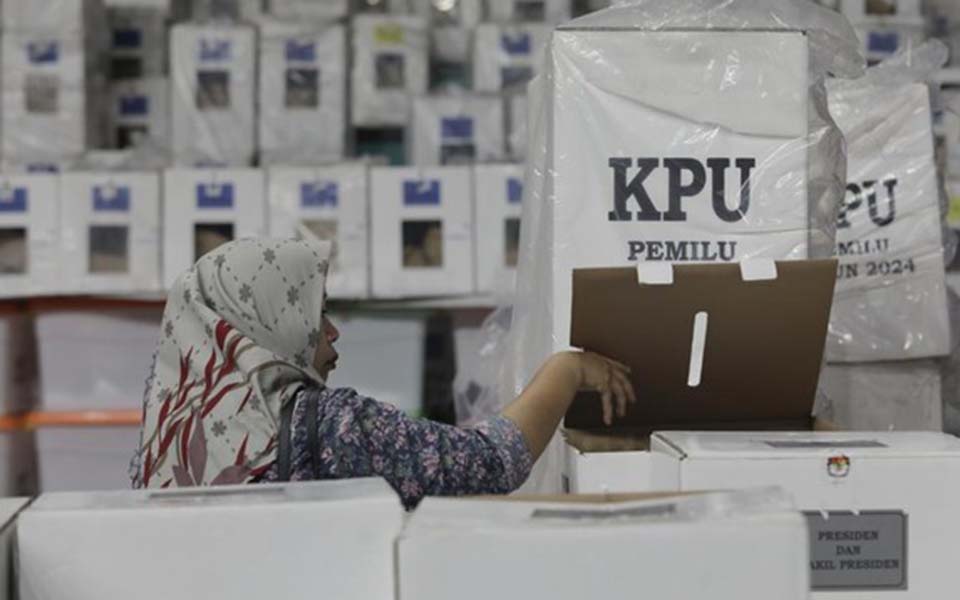Riang Karunianidi – On Monday August 20, the Constitutional Court found in favour of a lawsuit submitted by the Labour Party and the Indonesian People's Wave Party (Gelora) on the Regional Elections Law (UU Pilkada). The court made two important rulings on the same day.
First, ruling Number 60/PUU-XXII/2024. In this ruling, the Constitutional Court stated that political parties or a coalition of political parties in the election of regional heads (Pilkada) can register a candidate ticket even though they do not have any seats in their respective Regional House of Representative (DPRD).
Following the ruling, the threshold to nominate candidates in regional elections is new determined by the 2024 fixed voter list (DPT) for each region. There are four classifications based on the number of legitimate votes received by a party that were set by the Constitutional Court, namely 10 percent, 8.5 percent, 7.5 percent and 6.5 percent in accordance with the size of the DPT in the respective region.
Second, was a ruling on of Case Number 70/PUU-XXII/2024 on testing the age limit for the candidate regional heads as regulated under Article 7 Paragraph (2) Letter e of the existing Regional Elections Law. The ruling annulled the Supreme Court's interpretation on the age limit in the Regional Elections Law.
The Supreme Court ruling in May was related to changes in the age requirements for the candidate regional heads so that it is calculated from the date of the inauguration of an elected candidate. Previously, the age requirement was calculated from the date that General Elections Commission (KPU) confirmed the candidates' nomination.
The day after this, the House of Representatives' (DPR) Legislative Body (Baleg) made plans to hold a meeting to examine the Constitutional Court's rulings on the nomination threshold and age limit. The meeting was to be held on Wednesday August 21.
However, the DPR not only examined the two rulings, but tried to annul them. The efforts to annul the two rulings had two objectives.
First, there were two scenarios related to Constitutional Court Ruling Number 60/PUU-XXII/2024. Namely overturning Constitutional Court Ruling Number 60/PUU-XXII/2024 by continuing to apply Article 40 of the Regional Elections Law on the nomination threshold of 20 percent of seats in the DPRD or only applying the changes to the 2029 regional elections, not this year’s elections.
Second, determining the age limit for regional head candidates from the date they are inaugurated in accordance with to the Supreme Court's ruling, even though Constitutional Court Ruling Number 70/PUU-XXII/2024 confirmed that the age limit for the regional head candidate is determined from the date their nomination is accepted by the KPU, not the inauguration.
The move by the DPR immediately triggered a consolidation among several movement circles. As of today, actions have taken place in Palembang, Padang, Jakarta, Semarang, Yogyakarta, Malang, Cianjur, Bandung, Makassar and Surabaya.
What can be captured from this outpouring of anger? There are two tendencies or perspectives.
First, people were angry because the DPR was seen as trying to accommodate plans by president elect Prabowo Subianto's Indonesian Onward Coalition Plus (Kim+) to contest an empty ballot box in the Jakarta elections, which were stymied by the Constitutional Court ruling.
Second, angry because they consider the state of democracy in Indonesia to have worsened under President Joko "Jokowi" Widodo's watch and his dynasty building has gone too far.
But when we talk about democracy, we cannot just talk about democracy in general. We need to ask democracy for who? For which class?
Former Jakarta governor Anies Baswedan and the Indonesian Democratic Party of Struggle (PDI-P), who were locked out of the Jakarta gubernatorial elections by KIM+ up until the Constitutional Court ruling on the nomination threshold, were certainly disturbed by the efforts of the other eight political party faction in the parliament. If successful, then they would lose their "democratic right" to have a candidate for governor in the Jakarta elections.
But how would this benefit the workers and the ordinary Indonesian people? What do we get if they if they are able to field a candidate for governor or even win the Jakarta gubernatorial election?
Didn't all these political parties, both those in the KIM+ coalition as well as the PDI-P and Baswedan actually play a major role in directly or indirectly supporting the ratification of various legal products that have damaged democracy, damaged workers and the ordinary people?
Isn't it a fact that the series of anti-democratic legal products were born in Indonesia during the presidency of Megawati Sukarnoputri – the chairperson of the PDI-P – and Widodo's predecessor president Susilo Bambang Yudhoyono during his two terms in office? During the 10 years of the Widodo regime, with the full backing of the PDI-P, we have seen numerous anti-democratic laws being passed.
In 2017, Widodo issued Government Regulation (PP) Number 60/2017 which regulates that public events and political activities require prior permission from the police, which can be rejected, and such activities may be disbanded if they do not have police approval.
In the same year, the law on social and mass organisations was passed that allows the government to directly ban and dissolve a mass organisation without having to go through the courts first.
Then in the Anti-Terrorism Law and revisions to the Information and Electronic Transactions (ITE) Law that were passed during the Widodo era, there are criminal offences for people who choose to abstain in elections. In addition to this there were the revisions to the Criminal Code (KUHP) in which contain articles on treason, insulting the president and blasphemy.
In the labour sector, the anti-democratic character of the Widodo regime has been seen since they issued Government Regulation (PP) Number 78/2015 which essentially eliminates trade union involvement in determining the minimum wage.
Currently, the DPR and the government are also working on revisions of the National Police Law (UU Polri) which will allow the police to be more involved in politics and revisions the Indonesian Military Law (UU TNI) which will open the door for active TNI members to occupy civilian positions.
These anti-people policy products were born in a political climate that was relatively similar: they were agreed by all the political parties in the parliament, including those who supported or did not support the Widodo administration.
This does not mean that the various political elite factions cannot continue to unite and live happily together. Of course there is a struggle currently going on between them, but basically the struggle is one over political power and economic resources.
We cannot say or even imagine that the struggle between the political elite factions is related to the interests of workers and the ordinary people such as democracy and prosperity. Their fight will be resolved after the redistribution of the division of power and economic resources are completed.
Do we all still remember the 2019 electoral battle between Widodo and Vice President Ma'ruf Amin against the rival ticket of Prabowo Subianto and his running mate Sandiaga Uno? Do you still remember how during his first term in office Widodo and Vice President Jusuf Kalla promised that his administration would be professional? How following their election defeat Prabowo and Uno became ministers in Widodo's cabinet. Meanwhile it was becoming increasingly clear that the Widodo administration was a government that parcelled out positions including to those who had been their political opponents.
The PDI-P will of course will get a free ride amid the wave of opposition to the revisions to the regional elections law. In this situation, the movement must raise its demands as clearly as possible, as soon as possible, and as concretely as possible. Without this, the existing bourgeois factions can easily fill the empty space which is void of demands by the movement. This could just push one part of the movement to stop the movement or even worse become a "riding horse" to be mounted by an existing bourgeois faction.
Demands that are in the interests of workers and the ordinary people for democratisation are first and primarily the elimination of all anti-democratic legal products. This includes the various legal products mentioned above. All legal products related to general elections or political parties must eliminate any obstacles, any limits, any conditions and must be as open as possible to make it easier for workers and the ordinary people to establish political parties or back their own prospective leaders.
On the one hand, all these packages of laws have been the foundation for the destruction of democracy for workers and the ordinary people during the reformasi era – the political reform process that began in 1998, and on the other hand are tools to support the ruling classes interests.
And it is certain that they will continue to be used as weapons by the next regime that comes to power: the remnants of the New Order regime of former president Suharto and the political dynasties being built by Widodo and others. When these demands are fought for, in and of itself the struggle by workers and the ordinary people will build a dividing wall against the bourgeois elite so that it is difficult for them to be intervened in or just become mounts for one of the bourgeois factions.
But in the end, in order to fight these anti-democratic policies, destroy the remnants of the Suharto military regime and the political dynasties, it will require political power from the workers and the ordinary people themselves.
The Labor Movement with the People (GEBRAK) as a significant and relatively progressive force in Indonesia must initiate and complete a discussion on and the development of an alternative political force. An alternative political force for or a political party that aims to seize political power is an urgent need for workers and the ordinary Indonesian people.
This point is important to be clarified because there are still chaotic views within the movement itself. For example, the view that says that building an alternative force or political party is too abstract or elusive, or the view that eliminates the purpose of the power struggle and replaces it with the view of the non-government organisations (NGOs) or the moral movements that the purpose of the movement is to be an opposition or a kind of loyal critic, a balancing force or some such thing.
Riang Karunianidi a member of the socialist youth organisation Resistance and a leading member of the Perserikatan Sosialis (PS, Socialist Union). Arah Juang is the newspaper of the PS.
[Translated by James Balowski. The original title of the article was "Keputusan MK VS Baleg DPR: Pertarungan Para Elit Politik! Buruh dan Rakyat Berjuang Untuk Penghapusan Seluruh Produk Hukum Anti Demokrasi! – Arah Juang".]






